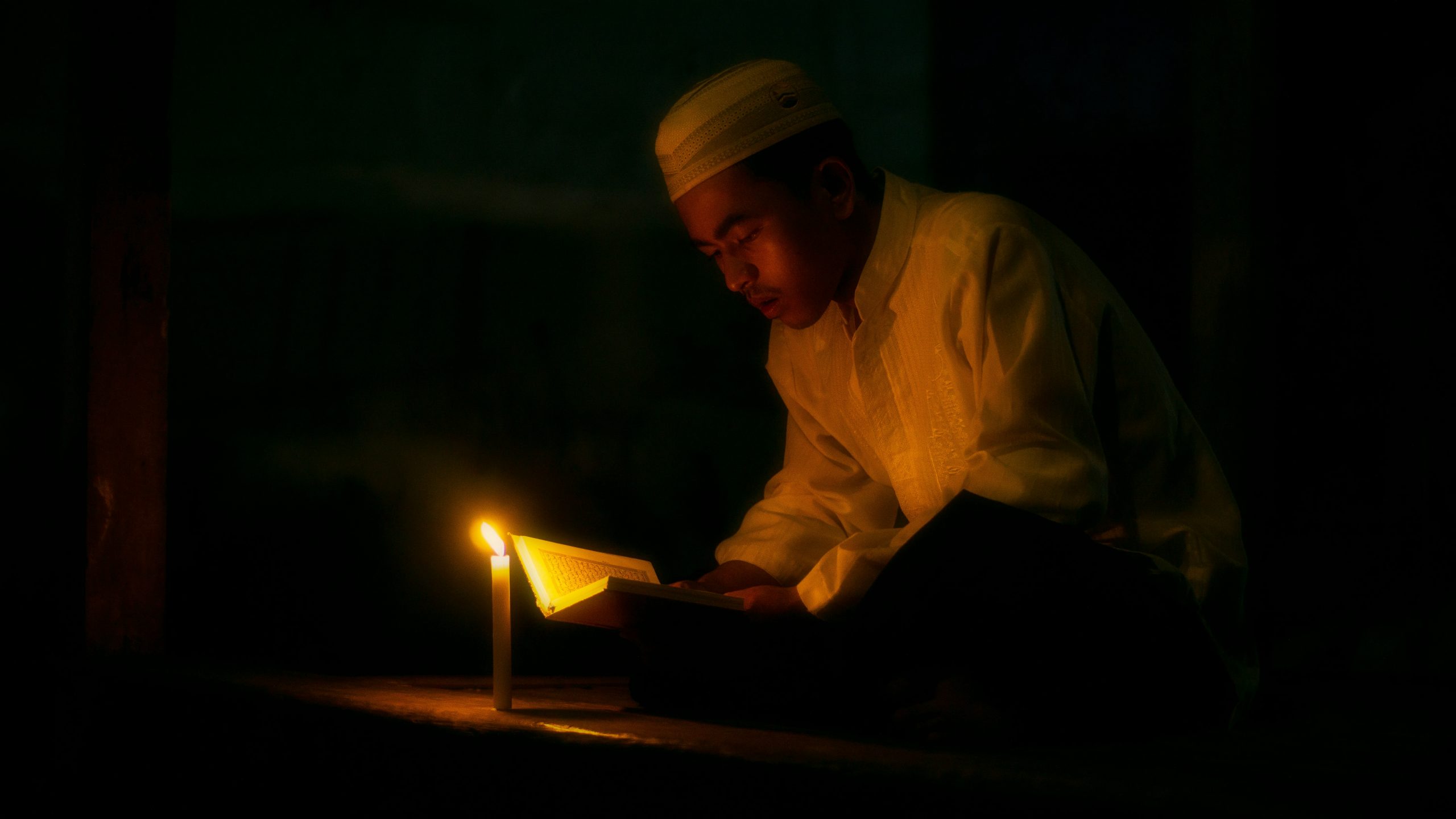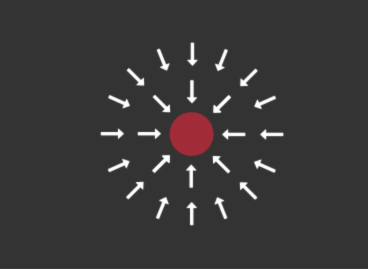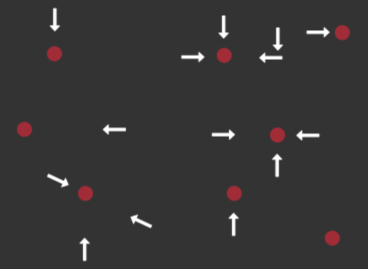It’s been ten years.
Ten years since you heard the adhan reverberating through the crowded streets, ten years since your feet felt the hardness of the marble floors, ten years since you laid your eyes on the Kaabah.
In those ten years, your father’s beard turns white. Your siblings graduate from high school, then university, find jobs, get married, have kids.
You become a mother yourself, once, then twice, and now you have two boys, five and eight, you celebrate your fourteenth wedding anniversary, your business is growing, and look – look what these ten years have made of you. You’ve gone through difficulties you never thought you could get out of, trials you endured when everything changed, the debris of those explosions scattered across the years. Somehow, Allah  saves you, helps you pick up all those pieces, and returns you to yourself.
saves you, helps you pick up all those pieces, and returns you to yourself.
He molds you into the person you’ve always wanted to be.
After ten years, you are content, at home in yourself, and only then, Allah  invites you back.
invites you back.
To His home.
***
In the weeks before you depart, whenever you start to think, I’m going for Umrah, there’s a lump that forms in your throat and no sooner is it there that you swallow it. Not yet, you tell yourself. It’s not true until it’s real.
You have done everything, crossed off all the tasks on your to-do list – book flights, book hotels, apply for visas, download the Nusuk app, book Umrah and Rawdah times. But you still don’t believe it. “I’m going for Umrah,” you tell your friends and you feel nothing, not even a flutter of excitement in your chest, even as you admit to them that you can’t wait.
And then the day comes when you are finally leaving and all your energy is laser-focused on the last-minute tasks – packing the kids’ suitcase for their stayover at your in-laws, making sure they have enough underwear and socks to last them the week, their snow pants, hats, gloves, mittens, neck warmers for when they go out and in case it snows, and don’t forget their health cards and medication in case they fall sick.
You are mostly packed but you fuss and fidget, wondering if you are taking too much, too little, not enough of something, and you check and recheck your bags, and as the hours slip by and you make wudu, change into your travel clothes, pray asr, and walk out of your home, still you will not let yourself believe that you are going.
It is staring you in the face, the ride to the airport, the check-in counter, the boarding passes tucked between the pages of your passport, kissing your children goodbye, going through security, finding your gate, finding your seat, the long wait on the runway for the place to deice, and then finally a rush and a rumble and you are in the air.
“It will hit you when you are on the plane,” your friend had said when she dropped you off at the airport. You are flying in the black of the night through a haze of darkness, but still, you will not let yourself arrive until you get there.
You have a subpar dinner on the plane; a piece of chicken soaked in teriyaki sauce, rice with boiled lima beans that feel like chalk, rubbery carrots, and a small brownie square that your husband declares tastes like brown sugar. When the lights are turned off, you fall asleep.
The plane runs out of fuel in the middle of the Atlantic and the pilot has to turn the plane around and land somewhere else. Your eyes open and you’re still there on the plane, your mouth dry and pasty, squeezed in the middle seat, your husband on your right and your sister on your left.
You fall asleep again and you are on a beach somewhere in a summer dress you don’t own, your husband in a beach shirt you don’t recognize, and you are talking to his cousin who lives in Florida and you tell her it’s okay, it wasn’t meant to be, Allah will take us there another time. You wake up and there is no sand, no beach, the same plane, the same people, the same night.
will take us there another time. You wake up and there is no sand, no beach, the same plane, the same people, the same night.
You go back to sleep and then you are over the Atlantic once again and now there is a medical emergency. A little girl is sick and there’s a port in the middle of the ocean, and a glaring white light guides the plane to the runway and everyone debarks because of the little girl, waiting for an ambulance in the middle of the ocean, and your eyes fly open and the lights are on and the flight attendants are rolling their meal and beverage carts through the aisles, asking, “Eggs or waffles? Tea or coffee?”
After that, you don’t sleep. You watch the flight path, the pixelated image of the plane on the screen moving swiftly, flying over cities, crossing one border after another, until you look out the window and see brown earth and desert sand and you are almost there, but not yet, there is still another hurdle.
Your flight out of Toronto was delayed and your two-hour layover is now only 45 minutes. You have to pass through security again to catch your next flight to Jeddah.
The line is long and they are screening everyone’s bags again. You slowly inch to the front, walk through the metal detectors, collect all your bags, and then run.
You had planned to have a meal at this airport but you forget all that and you keep running, past the cafes and the restaurants and the brightly-lit duty-free shops, past your gate until you find the closest bathroom, change, make wudhu, run back to the gate and step onto the plane.
As you walk single file through the narrow aisle to find your seat, out of breath, heart thumping, you notice other pilgrims on the plane, men in their white ihram towels, women in abayas, and you can feel the weight of the moment tugging your insides, something threatening to come up your throat, but no, not yet, you are not there yet.
It is a short flight, only two hours long, enough time to write down the dua’s you want to make during Umrah. You take out your old dua’ notebook for inspiration, the one from when you went for Hajj ten years ago, but your eyes gloss over the pages, all those old dua’s that were answered, the old you who had written them, who had asked God for so much and He gave her more.
You open your new notebook, but there’s some nervous energy in your fingers that stops you from picking up the pen and writing.
They give you a meal on the plane, a tastier meal, a warm sandwich with chicken and sauteed onions and peppers, a meal that feels like an answered prayer, and while you are eating, the pilot makes an announcement – the plane will pass over the miqat in 30 minutes.
You have the screenshot ready from the Umrah guide you found online, what to say to make the niyyah for Umrah. It is a declaration, a statement of intent, formulating your purpose of the trip before Allah  . Once you state your intention and pass the miqat, you are officially in a state of ihram and ready to perform Umrah. There is no turning back.
. Once you state your intention and pass the miqat, you are officially in a state of ihram and ready to perform Umrah. There is no turning back.
You hear a buzzing click, the airplane speakers turning on, and the pilot’s voice fills the plane again.
“In five minutes, we will pass over the miqat.”
The moment is almost here. That page you took a screenshot of, you will need it in just a minute, just a minute longer. You look down on your phone at the bright white screen, the Arabic letters strung together, the transliteration in bold, and below it the translation in plain text. Tears pool in your eyes and the screen blurs. You can’t make out the words anymore. But you don’t need them. The words are in your heart already.
It is time.
Labbayk Allahumma Umrah. O Allah, here I am, to perform Umrah.
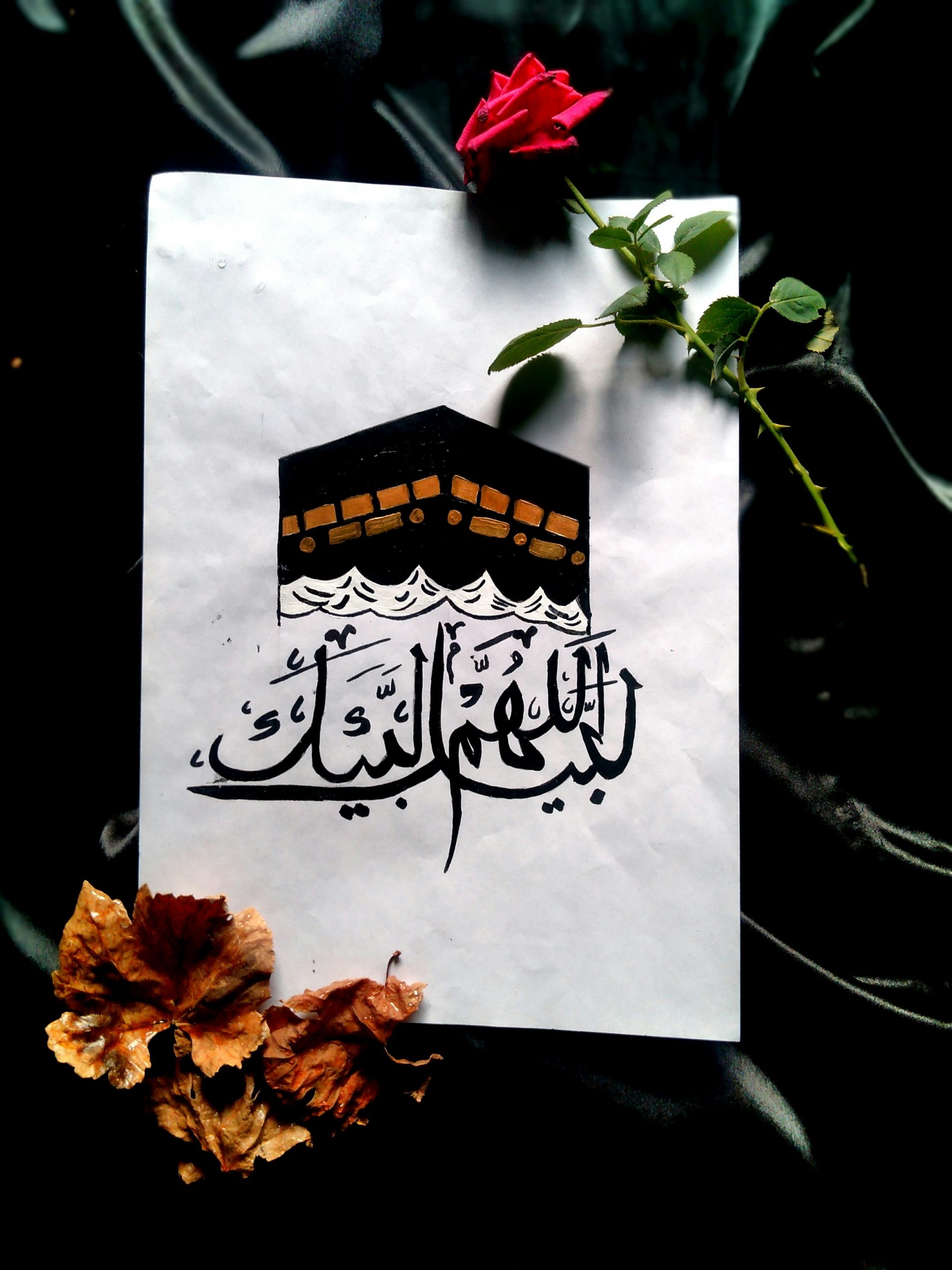
The Invitation PC: Maryam B (unsplash)
You repeat the words over and over again, even though you only need to say them once, and you are already in ihram now, but O Allah, please look, here I am, to perform Umrah. You called me here, O Allah, and here I am.
You can’t stop saying the words, the tears you had kept at bay finally spilling out, and at long last, you allow yourself to believe that Allah  invited you back.
invited you back.
Ten years.
Ten years later and you are going back to your Lord’s house. You are returning home.
***
There are two lessons you carry with you from when you went for Hajj ten years ago.
Lesson One: Just because you are nearer to the Kaabah, your salah will not magically transform. Your prayers in the Haram ten years ago weren’t what you had expected – an experience of transcendence, a rush of khushoo in every salah. They were mostly ordinary prayers, your mind distracted.
Reality: Your first prayer at the Haram, 10 years later.
You walk to the masjid, the adhan for fajr cascading across the indigo sky. Your sister, in her excitement, has forgotten to make wudhu and you notice you don’t feel even an itch of irritation. You ask one of the workers in the blue overalls for directions to the women’s washrooms. It is a far walk from where you are but it doesn’t matter because nothing else matters anymore.
You breathe deeply, looking up at the dark sky, the towering minarets, the worshippers around you, marveling at the fact that every single person here is a guest of Allah  . And you are one of them.
. And you are one of them.
Your sister makes wudhu and now you have to find the entrance for pilgrims. You look up and there is the sign, right in front of you, directing you to King Abdul Aziz Gate. “We didn’t even have to look for it,” your husband says, and your sister relishes in this new miracle, her feeling of foolishness at forgetting to make wudu turned to awe.
You cross the courtyard, remove your sandals, and enter through the golden doors. And there you are, the black of the Kabah straight ahead, a network of steel scaffolding blocking your view, but it doesn’t even matter because you are here.
Ten years later, you are finally here.
There are no carpets where the guards direct you to pray. You spread a thin teal-colored prayer mat, a gift from your older sister.
You stand up to pray your sunnah for fajr. You remind yourself of Lesson One: your prayer will not be perfect just because you are here. Then why are you crying as soon as you raise your hands and look up, past the metal scaffolding, past the brick arches, past the sea of men in white and the women in hijabs, your gaze coming to rest at the Kaabah, the house of Allah  built thousands of years ago by the Khalil of Allah
built thousands of years ago by the Khalil of Allah  , the one who prayed for this place to be a sanctuary for all the believers, for you?
, the one who prayed for this place to be a sanctuary for all the believers, for you?
Every second of that prayer is presence and transcendence and your body doesn’t know what to do with this overwhelming rush of gratitude. The tears keep flowing. Ten years and your Lord invited you back when He knew you would be most grateful for it, when you would be ready to receive His blessings like you’ve never received any blessing before this, like you’ve never known gratitude before this moment.
***
Lesson Two: Umrah is hard. It will be physically exhausting and you will want it to be over. When you last performed Umrah, ten years ago, you were tired and exhausted, especially during the sa’ee, the pacing back and forth between Safa and Marwa, limbs and feet aching, waiting for it to be finished.
Reality: You begin your Umrah with the tawaf, raising your right arm in the direction of Hajar al Aswad, the black stone. Bismillah Allahu Akbar.
You don’t have a list of dua’s this time but you don’t need a list. You simply talk to Allah  . That is your dua’. Just you and your Creator in this moment, this tawaf, this Umrah, this House of your Lord.
. That is your dua’. Just you and your Creator in this moment, this tawaf, this Umrah, this House of your Lord.
You cry, not caring to hide your tears this time, from your husband or your sister, because it has been ten years, and look who you are now, ten years later.
You needed those ten years to realize that when you have Allah  , nothing else matters. Who sees your tears, who judges your pain, Who interrogates your fears, none of it matters.
, nothing else matters. Who sees your tears, who judges your pain, Who interrogates your fears, none of it matters.
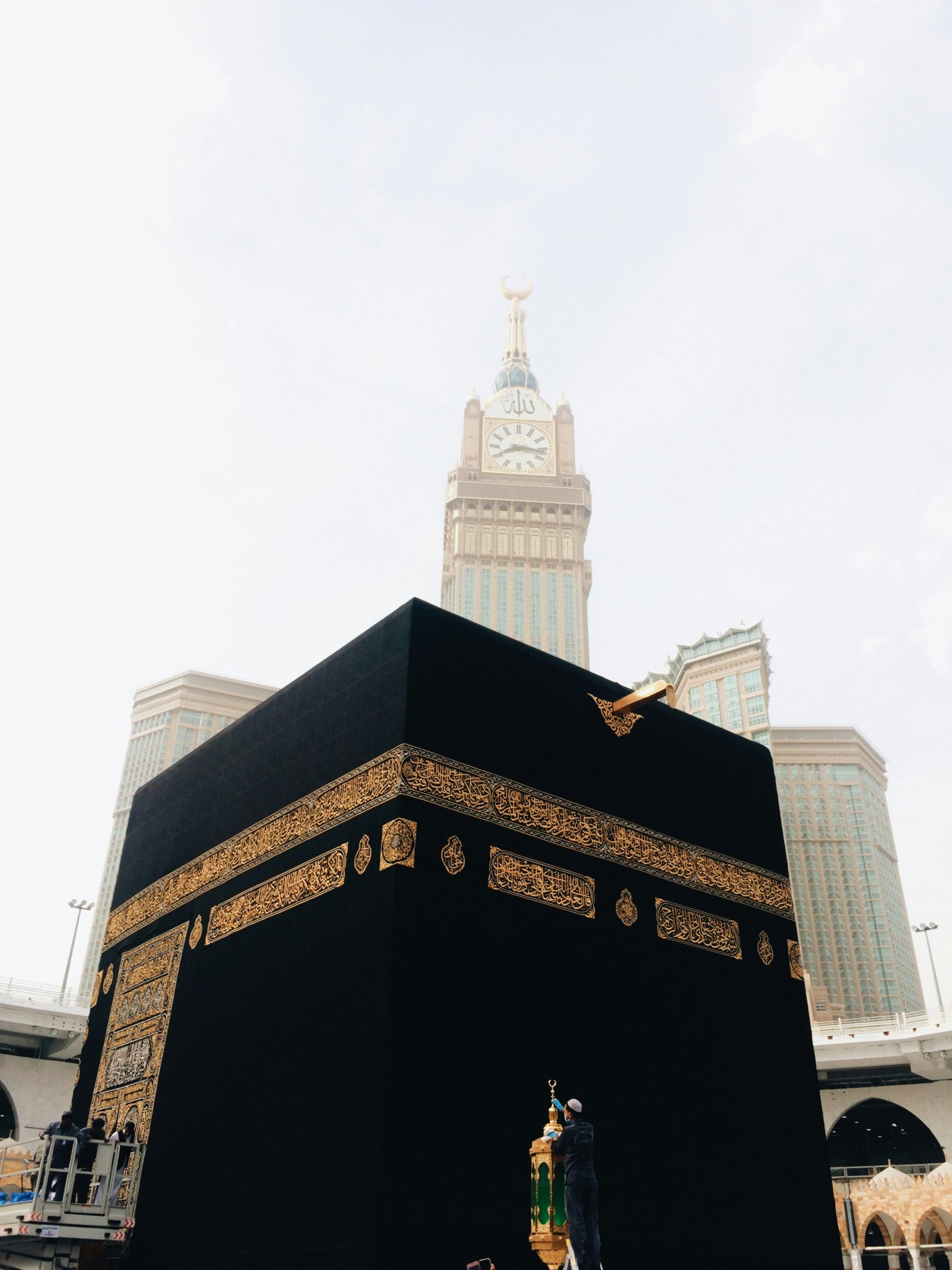
The Kaabah [PC: Untung Bekti Nugroho (unsplash)]
To your left is the Kaabah, ahead of you is
maqam Ibrahim, the sky is brightening, and everyone around you is pleading with their Lord. Someone is calling out to Allah

by His Names, one after another, followed by a chorus of dua’s.
You are suspended in time, as if you were in this moment forever, as if you were always only here, this crush of people around you, bodies in constant motion, praising, pleading, praying to their Lord, your Lord.
You are here, you are here, you are here.
Before you begin the sa’ee, you snack on a granola bar. You know you will get tired and maybe this burst of sugar in your blood will keep you afloat for a little bit longer.
You start the sa’ee and soon enough, your legs begin to hurt, your calves humming with pain, the soles of your feet aching as you walk and run on the hard marble floor.
But every time you check in with yourself, How are you doing? How are you feeling? the answer comes back, I don’t want this to end.
You have never felt more content, more connected to your Lord, because ten years later, you are finally here, and how could you want it to end? You are retracing the footsteps of your namesake, the woman who trusted Allah  and never doubted her place in this world.
and never doubted her place in this world.
You think of her as you run between the green lights, imagine her panic when her child was out of view as she ran through the dry, barren valley, imagine how her certainty in her Lord’s help could have existed at the same time as her struggle.
Thousands of years later, you are here, running over the same ground, marble beneath your feet, fans overhead, the physical landscape completely altered but the landscape of your hearts, the same; your Lord and her Lord, the same. And just as your Lord saved her, you realize it was your Lord who saved you too.
***
In those ten years, you prayed to return.
Every Ramadan, the final dua’ on your dua list for the last ten nights was always O Allah, please let me be able to go for Umrah.
Even when it wasn’t feasible because you were now pregnant, now with a baby, now jobless, now pregnant again, now with two small kids, now all your savings run out, even then you prayed, O Allah, please let me be able to go for Umrah.
Ten years of yearning. What does that do to your heart? You think it will harden and expect no return.
But your Lord is As-Sam’ee, the One who is All-Hearing, and Al-Mujeeb, the One who Answers. And you know your prayers were not lost, that Your Lord had collected each and every one of them, kept them safe with Himself, and that one day, one day, the time would come when your Lord would invite you back. An invitation that would be exclusively from Him, and only His to grant. And now that you are finally here, your hands raised, gazing at the Kabah, you remember what the Prophet  had said to his beloved, “Should I not be a grateful servant?”1
had said to his beloved, “Should I not be a grateful servant?”1
***
Two new lessons you take home with you.
Lesson One: God never withholds without reason. And when the withholding is finished, when the wait is over, you will sit and marvel at the perfection of God’s plan. Your heart will be unable to contain the mountain of gratitude you feel at the fact that He is your Lord and you have already been blessed with the greatest gift of all, your faith.
Lesson 2: God is your friend. A friend that never leaves, a friend that is always by your side, a whisper, a thought, a heartbeat away, always listening even when you can’t say anything or don’t know what to say. A friend who knows the speech of your heart.
And what do you do with a friend like that, a friend who never tires of hearing your voice? You never stop speaking, never stop asking.
Related:
– Reflections From Umrah: A Spiritual Journey Of Faith And Diversity
– Your Ultimate Umrah Planning Resource [2023 Update]
1 Aishah (May Allah be pleased with her) reported: The Prophet صلى الله عليه وسلم kept standing (in prayer) so long that the skin of his feet would crack. I asked him: “Why do you do this, while you have been forgiven of your former and later sins?” He said,
“Should I not be a grateful slave of Allah?” [Al-Bukhari and Muslim]. Reference: Riyad as-Salihin 1160; In-book reference: Book 8, Hadith 170
The post The Invitation: A Decade Of Longing appeared first on MuslimMatters.org.
 plan. It is among “the best of stories” [Surah Yusuf: 12;3] and a beautiful example of how, in the end, everything ultimately comes together perfectly according to His Divine Decree, and in this is a lesson for those with albab (minds) [Surah Yusuf: 12;111]. It contains what I find to be one of the most comforting ayat when experiencing sadness or hardship:
plan. It is among “the best of stories” [Surah Yusuf: 12;3] and a beautiful example of how, in the end, everything ultimately comes together perfectly according to His Divine Decree, and in this is a lesson for those with albab (minds) [Surah Yusuf: 12;111]. It contains what I find to be one of the most comforting ayat when experiencing sadness or hardship:
 is the one who hears and understands you when no one else does.
is the one who hears and understands you when no one else does. 

 is not unaware of what the oppressors do.
is not unaware of what the oppressors do.  is not unaware of the wrongdoing, and is only delaying oppressors and wrongdoers until the Hereafter.
is not unaware of the wrongdoing, and is only delaying oppressors and wrongdoers until the Hereafter.  is All-Hearing and All-Knowing and will surely bring oppressors to justice.
is All-Hearing and All-Knowing and will surely bring oppressors to justice.



 , or wrong others by oppressing them (or both) will experience this torment and wish it were possible for them to be delayed in their punishment.
, or wrong others by oppressing them (or both) will experience this torment and wish it were possible for them to be delayed in their punishment. 

 always keeps His promises and is fully capable of punishment. I find ayah 48 a very powerful and stark reminder. In particular, the phrasing of the Day of Judgement as replacing/changing the earth and the heavens is a profound description of how temporary this life is. In the context of bringing oppressors to justice, I also think of it as a reminder that ultimate victory and ultimate justice are near because the Day will come when the earth and heavens are replaced and everyone will be held accountable.
always keeps His promises and is fully capable of punishment. I find ayah 48 a very powerful and stark reminder. In particular, the phrasing of the Day of Judgement as replacing/changing the earth and the heavens is a profound description of how temporary this life is. In the context of bringing oppressors to justice, I also think of it as a reminder that ultimate victory and ultimate justice are near because the Day will come when the earth and heavens are replaced and everyone will be held accountable.


 holds everyone accountable for their actions and in accordance with the deeds they have committed, and these ayat explain how wrongdoers will be held accountable for theirs.
holds everyone accountable for their actions and in accordance with the deeds they have committed, and these ayat explain how wrongdoers will be held accountable for theirs. 
 punishment, and to internalize that everyone who transgresses in this life will not get away with it forever.
punishment, and to internalize that everyone who transgresses in this life will not get away with it forever.  alleviate the suffering of the oppressed of the Ummah, and grant them His promised justice against the oppressors.
alleviate the suffering of the oppressed of the Ummah, and grant them His promised justice against the oppressors.







 to his mother so that she would not grieve (e.g Surah Taha:40). And He loves the believers!
to his mother so that she would not grieve (e.g Surah Taha:40). And He loves the believers!




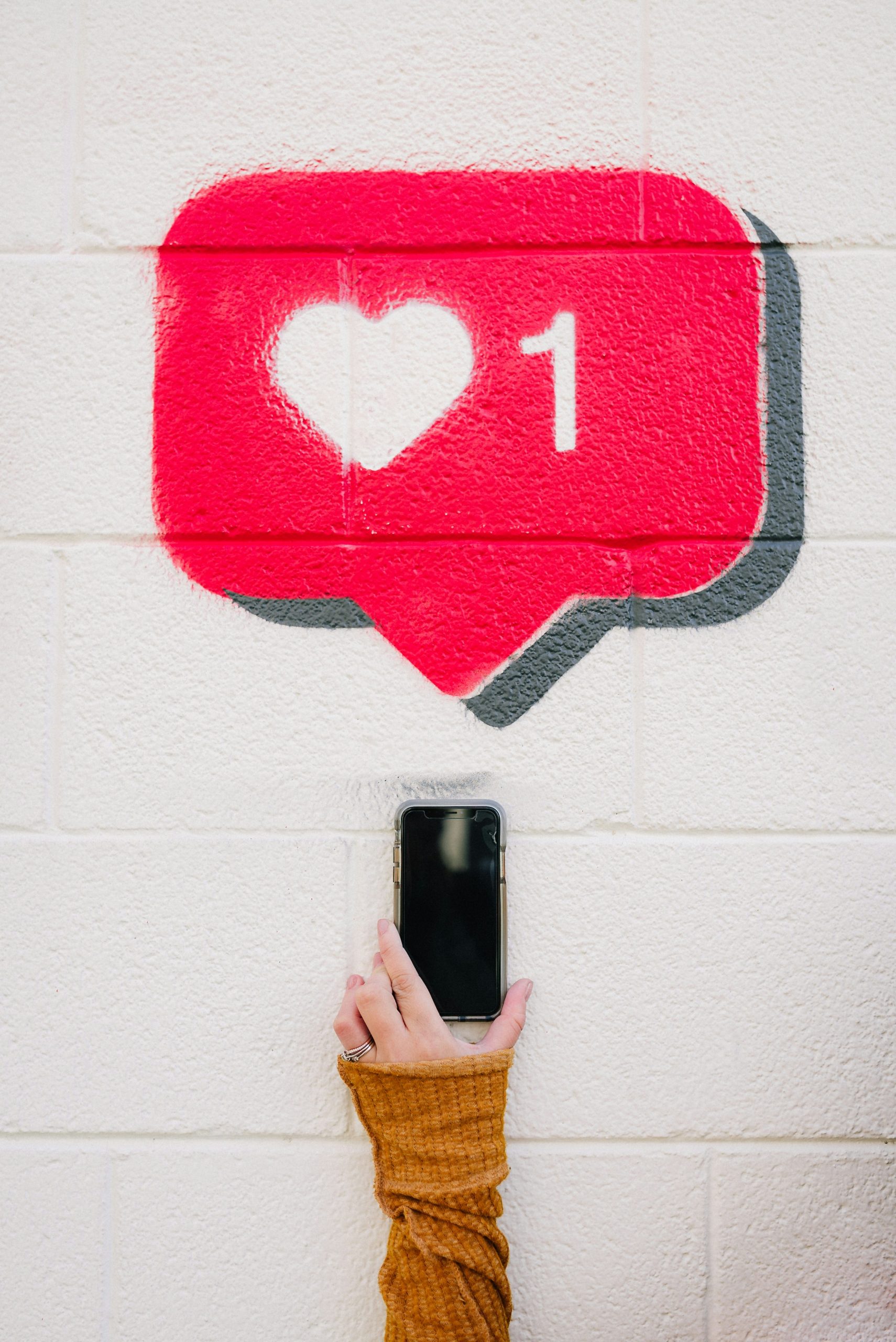
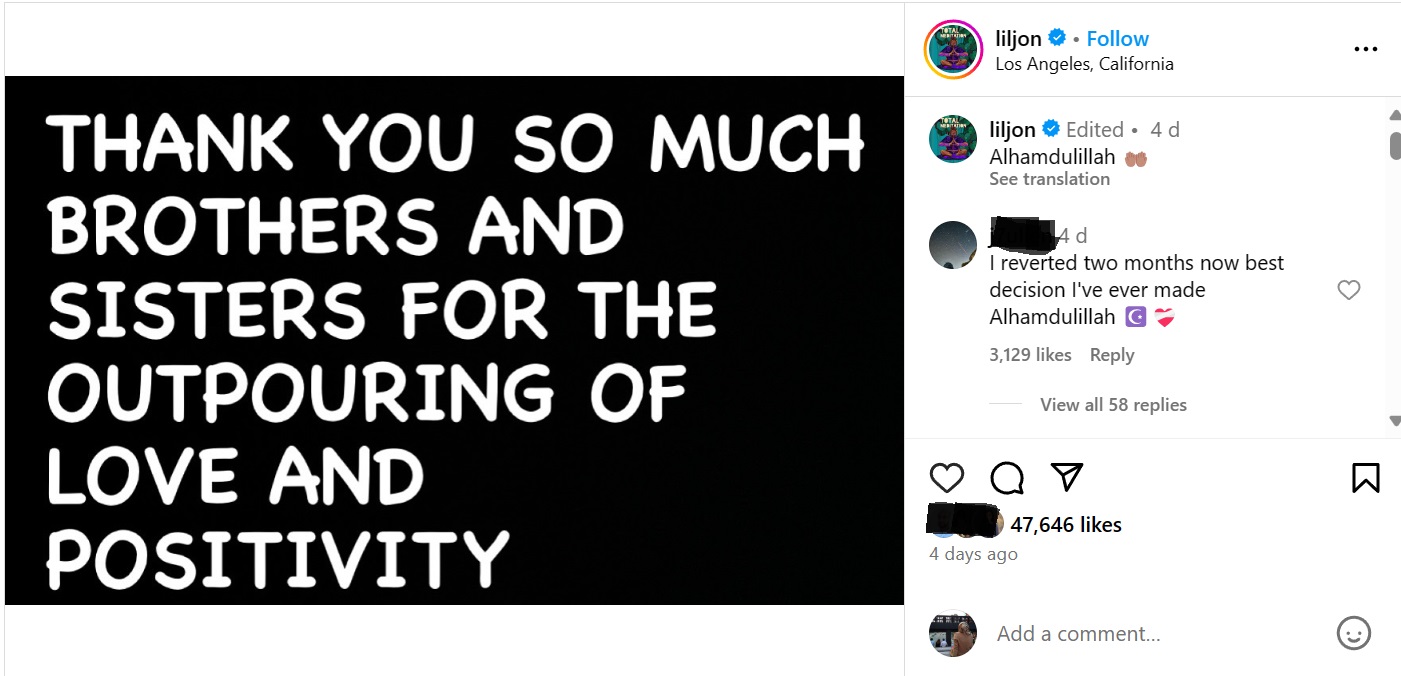
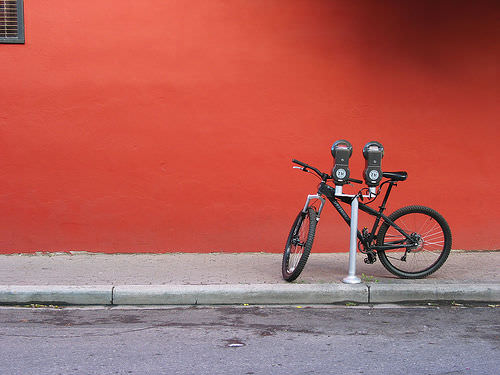
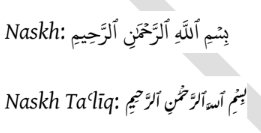
 . As most of us may have noticed, there are alifs that are written in the Qurʾān that are not read, e.g., َٓءيِْجاَو.These unique spellings are what is referred to as rasm ʿuthmānī.3
. As most of us may have noticed, there are alifs that are written in the Qurʾān that are not read, e.g., َٓءيِْجاَو.These unique spellings are what is referred to as rasm ʿuthmānī.3

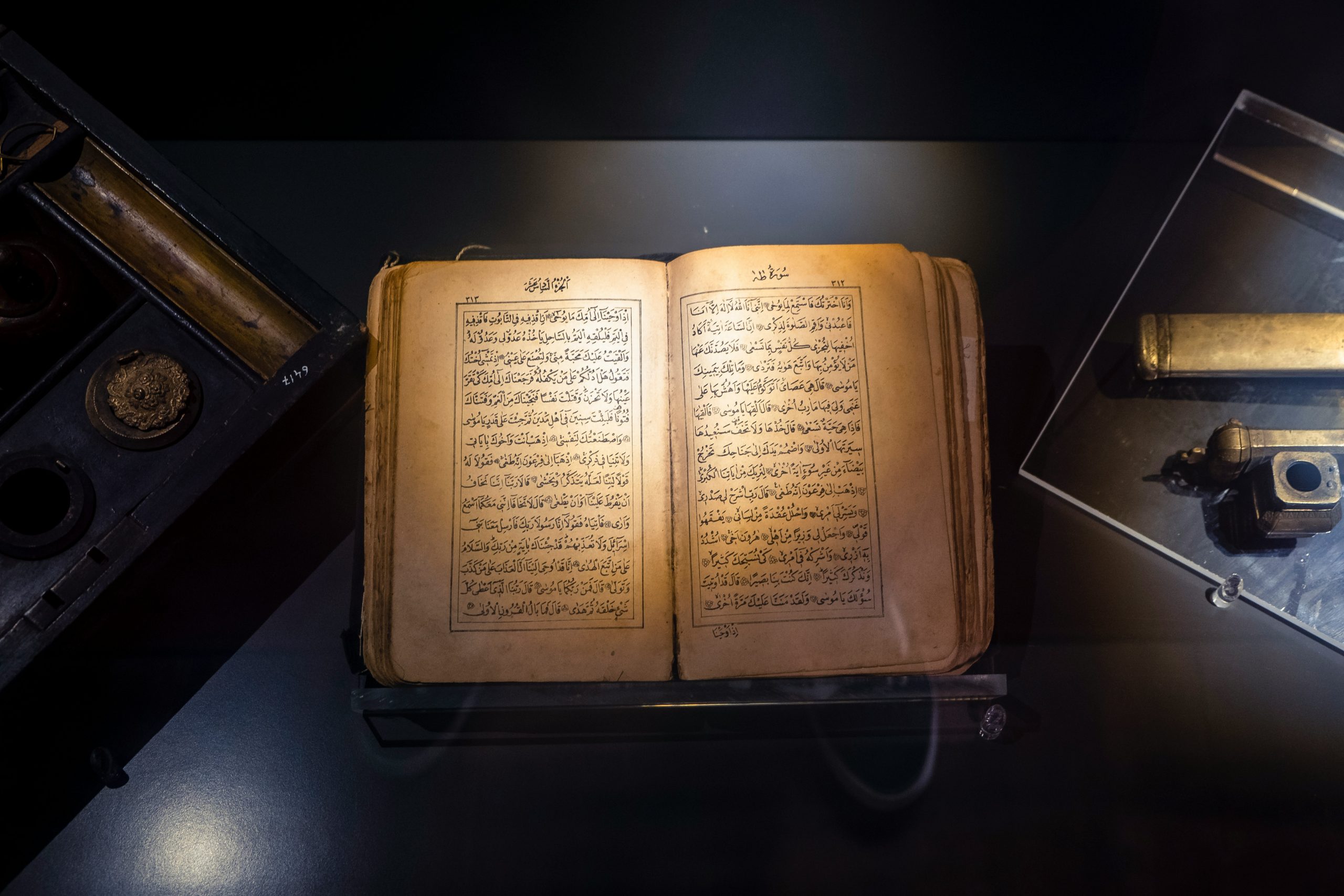 The earliest known divisions of the Qurʾān were in groups of five and ten verses. We know that this practice existed while the ṣaḥabah were still living.16 Over time, Muslims developed many other ways of dividing the Qurʾān that would facilitate the completion of the whole Qurʾān in a week, or a month. The Madīnah printed muṣḥaf divides each juz (one thirtieth of the Qurʾān) into eight parts, with a flower marking the beginning of a new part. The South Asian printed muṣḥaf divides each juz into four parts, and it marks the beginning of a new part by mentioning whether it is the completion of a fourth, half, or three-quarters in the margin. The South Asian printed muṣḥaf also includes the division of rukuʿāt, or places where the topic is complete. These are also used in other maṣāḥif in the world, such as the Turkish and Kuwaiti muṣḥaf. These were designated by Ḥanafī scholars of Central Asia around 300 AH.17
The earliest known divisions of the Qurʾān were in groups of five and ten verses. We know that this practice existed while the ṣaḥabah were still living.16 Over time, Muslims developed many other ways of dividing the Qurʾān that would facilitate the completion of the whole Qurʾān in a week, or a month. The Madīnah printed muṣḥaf divides each juz (one thirtieth of the Qurʾān) into eight parts, with a flower marking the beginning of a new part. The South Asian printed muṣḥaf divides each juz into four parts, and it marks the beginning of a new part by mentioning whether it is the completion of a fourth, half, or three-quarters in the margin. The South Asian printed muṣḥaf also includes the division of rukuʿāt, or places where the topic is complete. These are also used in other maṣāḥif in the world, such as the Turkish and Kuwaiti muṣḥaf. These were designated by Ḥanafī scholars of Central Asia around 300 AH.17








